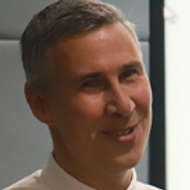The Results of the International Conference on Applied Research in Economics iCare-2021

Within the framework of the IX International Conference on Applied Research in Economics (iCare), topical issues of behavioral economics, finance, banking, labor and education economics, and environmental economics were discussed. The conference was held online and brought together researchers from Russia, India, USA, Germany and other countries. We summarize and publish the recordings of the reports.

Stefan Trautmann
Professor at the University of Heidelberg (keynote speaker at the ICARE conference)
The 2021 iCare conference organized by HSE– Perm was a very effective and useful event, despite the need to move the conference online within a short period of one week due to the Covid-19 situation.
The conference featured short reports from participants in several areas, including banking, labor and education economics, environmental economics, and behavioral economics. The format of short reports, many of which were presented by young researchers, was very useful to me. As an editor of several academic journals in economics and management, I need to keep track of ongoing research that goes beyond my immediate research interests. I also need to track young scientists as we have a strong demand for reviewers who understand new modern research methods and data sources.
For example, I really liked the work on the mechanisms of distorted reputation on the Airbnb booking platform: a unique set of data, research results that are relevant to a wide range of applications in management, in addition to the original research context. I believe that my own 50-minute keynote lecture was quite lengthy. I regret that due to the online format, there were obviously fewer opportunities to discuss this topic with the conference participants. The online format allows the effective dissemination of information, but is less useful for deeper participation in discussions and for creating opportunities for future collaborative interaction.
Dmitri Vinogradov
Professor of the Department of Economics and Finance at HSE – Perm, Professor of Finance, Adam Smith Business School, University of Glasgow, UK
Probably the main result of the iCare conference this year is that it took place regardless of the circumstances. If at the beginning of the year we planned to hold the conference entirely on campus, then by the summer it became clear that it was necessary to prepare for a “hybrid” format, in which some of the reports would be presented in the audience, and some via video communication. Understanding this limitation and based on our last year's experience with an online conference, we selected a total of 26 reports for two days of the conference. A week before the start of the conference, the situation changed dramatically, and we had to go online. Unlike last year, this time we made two streams (instead of three) and tightened the sections, reducing interruptions. This made it possible to leave in the programme all the accepted 26 reports, plus one key one, and at the same time to keep within five hours of online presence. I would like to express my gratitude to all the moderators of the sections – Maria Molodchik, Petr Parshakov, Laura Abrardi and Jurgen Eichberger – I had the opportunity to attend all the sections, and, in my opinion, with strict adherence to the rules everywhere, the speakers had the opportunity to convey the main idea of their work and even receive a number of comments, albeit in a concise manner.
The dynamic tone of the conference was set by the very first report in the "Finance" section – Yuri Tserlukevich from the University of Arizona got in touch at 11 a.m. (Perm time), while in Arizona at that time it was 11 p.m. of the previous day. In 15 minutes Yuri managed to present the main content of his rather long article, the full text of which (as the others) is available on the conference website. It seems to me that each section had interesting reports, and although the names of the sections were quite traditional for our conference, we can note some tendencies that distinguish this year from the previous ones. For example, the interest to the behavioral economics – not every year we receive so many reports on this topic, or an analysis of such a new market segment as Airbnb using data collected from online ads and reviews, or an analysis of manifestations of domestic violence, caste and other manifestations of injustice and inequality. All these topics are very important, and therefore, like 9 years ago, we care.
Special thanks to our keynote speakers – yes, in plural. The fact is that we had an agreement with Professor Hervé Moulin about his presentation on the topic of equitable distribution of benefits. I am very grateful to Hervé for agreeing to postpone his speech until next year, possibly as a part of a separate event when the coronavirus situation will allow everyone to gather live on campus. The second keynote speaker, Stefan Trautmann, has already postponed his speech for a year and even though this time his visit to Perm was canceled again, we decided not to revoke the report. Stefan's account of his experimental research into compliance, philanthropy, and interclass relations was engaging, completely understandable and inspiring. We really hope that next year we will be able to organize Stefan's visit to Perm so that he can get to know our campus and work with our graduate students and young scientists.
Special thanks to Olga Zhenina and Elena Shadrina for their prompt response to the changes, the organization of zoom streams, the correspondence with the participants, the enormous work carried out (and remained invisible) to organize visa support and, what is extremely important, for the feeling of calm and support, which is so necessary in a critical situation.
The conference is over – Viva the next conference! ICare turns 10 next year. And I really hope that we will all meet on the Perm campus, live communication is so necessary, and personal presence at the conference will never replace online communication. We have something to remember, and we have some plans for the future!

Jürgen Eichberger
Professor at the University of Heidelberg, Professor at the Department of Economics and Finance at HSE – Perm
This is the second time I attended the iCare conference. Unfortunately, due to the coronavirus, both conferences were forced to be held online. This time, even quite suddenly, we had to change the format and instead of the already planned and organized event on the Perm campus, we urgently go online. Congratulations on the successful accomplishment!
Substantially, the culminating speech for me was Stefan Trautmann's report, which rightfully stood in the middle of the conference. The report was very intelligible especially for young scientists. The proposed behavioral approach to issues of wealth and social responsibility gave it special significance.
In addition to it, both parallel streams of reports of the conference programme gave young scientists, and especially Perm ones, the opportunity to present their work at an international forum. I was especially impressed by the punctuality of the speakers, who clearly adhered to the time frame. In this respect, the programme of this year's conference seemed to me even more successful than the last one.
In part of future conferences, I would like to leave a little more time for questions and discussion of reports and to plan short breaks between sections. For instance, after three fifteen-minute reports, fifteen minutes could be given for questions and comments, as well as for a break. In general, this would not have greatly lengthened the conference, but it would have made it possible to better concentrate on the reports. Comments and questions in the chat are more likely to distract, since they are answered during the next presentation.
All in all, I would like to congratulate once again the organizers on the successful conference!
Vladimir Sokolov
Head of the International Research and Training Laboratory for Financial Economics at the International Institute of Economics and Finance, HSE
I have already participated in the iCare international conference 3 times, since I am engaged in financial research, it is important for me to track trends in this area. Of course, it is a pity that we were not able to meet with colleagues personally on the Perm campus.
I would like to mention that the thematic and geographical coverage of the conference is very wide – topics of current interest were touched upon, profound reports of researchers from different countries of the world were presented. For example, colleagues from HSE Maria Semenova and Nargiz Mammedova were fascinated by the research in the banking sector, Yuri Tserlukevich from Arizona revealed such an important topic as how financial institutions can help the development of a certain industry. The plenary report of Stefan Trautmann is a very detailed study at the intersection of economics and psychology, the speaker showed that the established opinion "rich people = unethical" is not so straightforward, there are many nuances.

Dmitri Kashin
Head of the International Office
This is the fourth time I am attending the iCare conference and the second time I am speaking online. This year we presented a joint study with Dmitri Vinogradov and Elena Shadrina on the topic of environmentally friendly procurement in Russia – "Declared Environmental Priorities of the Government as Implicit Incentives for Organizations to Act Green". Personally, I noted once again the significance of presentations with reports at the conferences – this way you can get valuable feedback from experts in the subject area and exchange experiences with colleagues.
The sections turned out to be very interesting. I especially remembered the presentation of the key speaker of the conference Stefan Trautmann with the report “Wealth and ethics: Does money make you mean?”. I would like to highlight the interesting formulation of the research question, the design of the study and the speaker's ability to tell about complex things in simple words so that you want to listen to the speech again and again.
Plenary report by Stefan Trautmann "Wealth and ethics: Does money make you mean?"
Sections: Finance, Financial Institutions, Inequality, Environment, Macroeconomics
We kindly offer you to listen to the reports:
Sections: Labour/Education, Regional, Behavioural, Consumer behaviour
We kindly offer you to listen to the reports:

